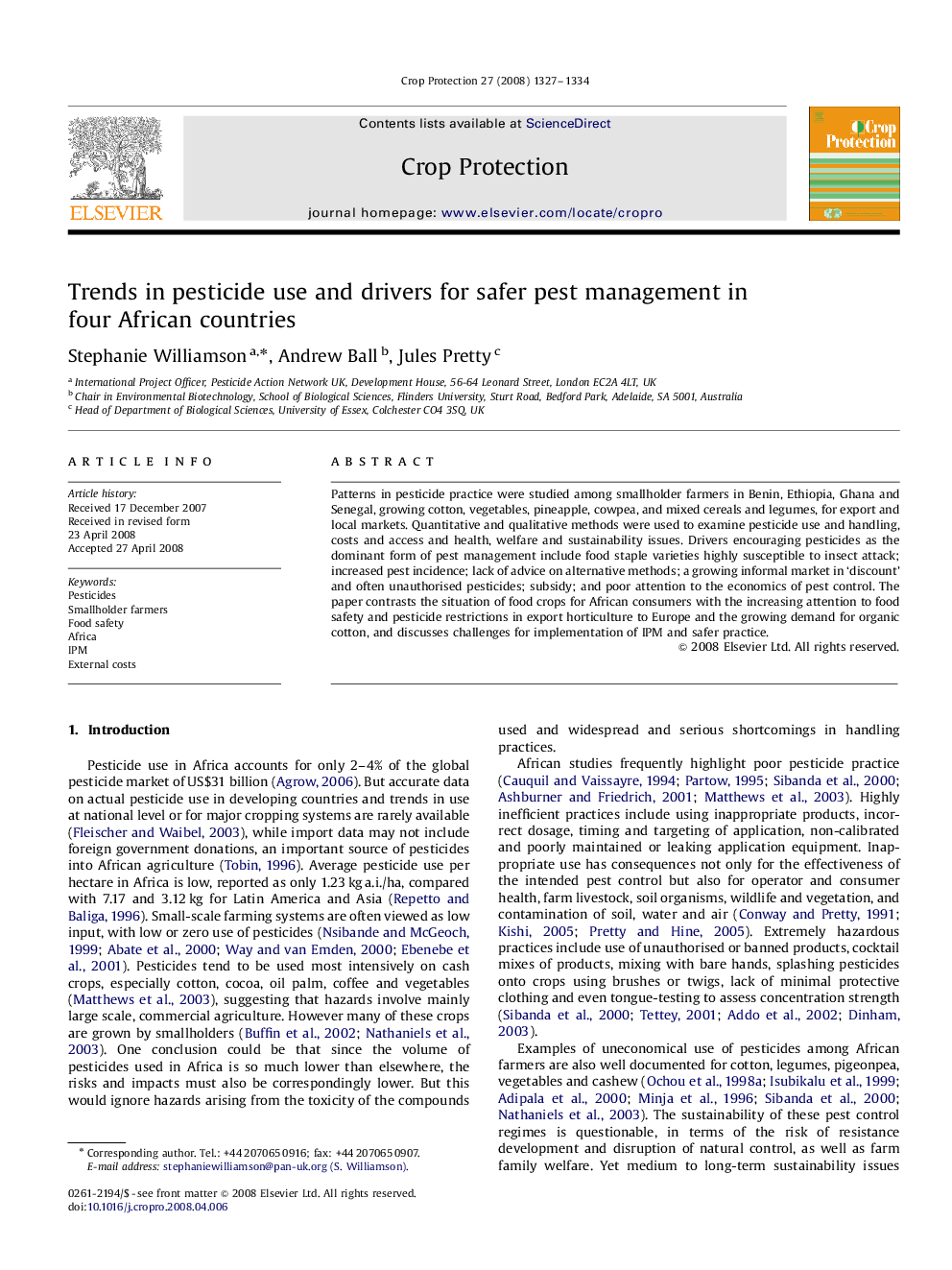| Article ID | Journal | Published Year | Pages | File Type |
|---|---|---|---|---|
| 4507661 | Crop Protection | 2008 | 8 Pages |
Patterns in pesticide practice were studied among smallholder farmers in Benin, Ethiopia, Ghana and Senegal, growing cotton, vegetables, pineapple, cowpea, and mixed cereals and legumes, for export and local markets. Quantitative and qualitative methods were used to examine pesticide use and handling, costs and access and health, welfare and sustainability issues. Drivers encouraging pesticides as the dominant form of pest management include food staple varieties highly susceptible to insect attack; increased pest incidence; lack of advice on alternative methods; a growing informal market in ‘discount’ and often unauthorised pesticides; subsidy; and poor attention to the economics of pest control. The paper contrasts the situation of food crops for African consumers with the increasing attention to food safety and pesticide restrictions in export horticulture to Europe and the growing demand for organic cotton, and discusses challenges for implementation of IPM and safer practice.
